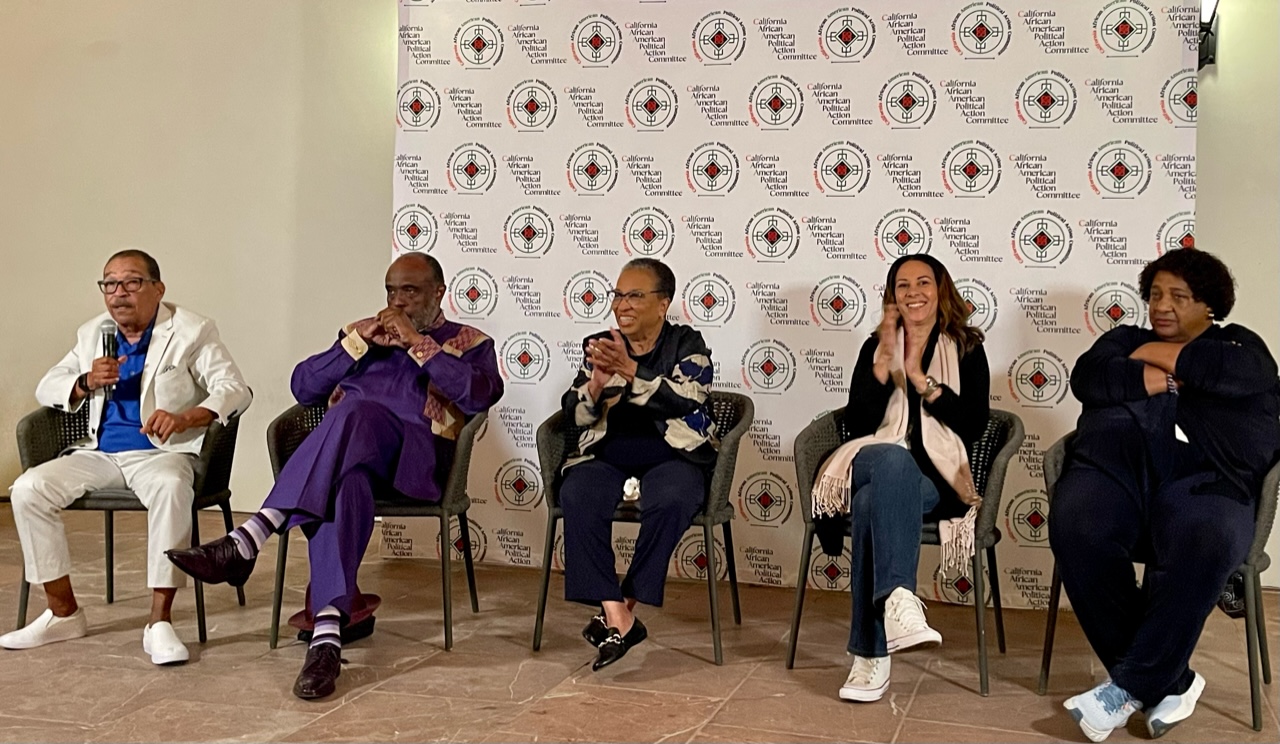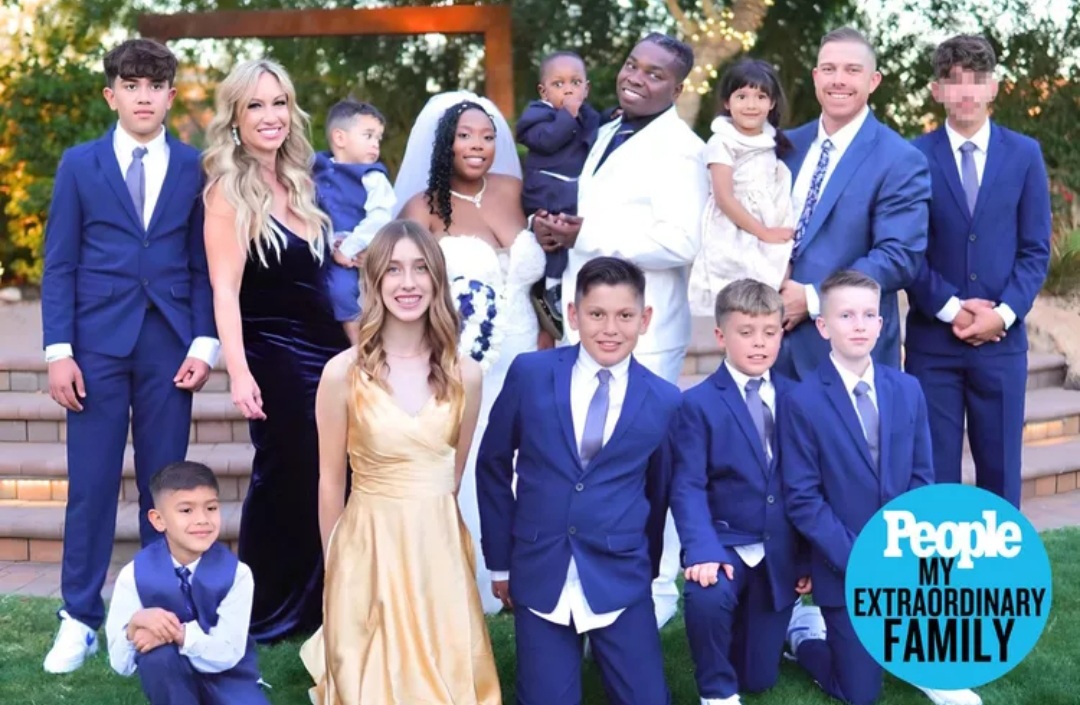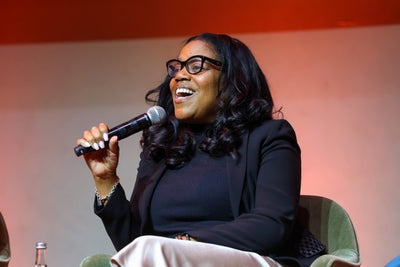As Democratic Primary Winds Down, Hillary Clinton Has to Win Over Sanders’ Supporters
By Manny Otiko-California Black Media
With eyes now looking toward California and Hillary Clinton claiming victory in the latest primary, she is still ahead of Vermont Sen. Bernie Sanders. Now as Hillary Clinton moves towards clinching the nomination she is faced with the task of winning over Sanders’ supporters.
Public Policy Institute of California, reports : about 43 percent of California’s 17.7 million voters are democrats, approximately 10 percent of that number are African American likely voters, California Democratic Party selection process has 549 delegates up for grabs, with 317 of those delegates being district level delegates, which will be distributed proportionately after the June 7 primary results, 106 at large statewide delegates, 53 party leader and elected official delegates, and 73 unpledged delegates in congress, U.S. senate and the governor.
Niam Sadik, a 35-year-old student at Cal State University, Los Angeles, is a Sanders’ supporter who says he will not vote for Clinton, if she is the Democratic nominee.
“I would never vote for Hillary,” said Sadik. “I would rather vote for the Green Party.” He is also impressed the Green Party has backed reparations for black people.
Sadik says he was offended by the comment Hillary Clinton made about so-called “super predators,” back in the 1990’s. Super predators were supposed to be amoral young black children raised in urban environments who were expected to unleash a wave of violent crime. The theory, predicted by political scientist John DiIulio Jr., has since been disproved.
“The super-predator theory was always bulls**t,” says criminal justice researcher Franklin Zimring of the University of California, Berkeley, in an interview with BuzzFeed News. “It was political rhetoric cloaking a movement that wanted to lock more people up.”
However, President Bill Clinton’s 1994 crime bill sent many blacks to jail for long periods of time. Sadik is surprised that both Clintons continue to have good relations with the black community.
“Black people are still under the impression that Bill Clinton was the first black president,” says Sadik.
Sadik grew up in Washington, D.C. and has been active in politics for a long time. He has been following Sanders’ career for several years and has been impressed with his policies and dedication to social justice. Sanders protested segregation in the 1960’s and has been a longtime critic of mass incarceration, the War on Drugs, and the militarization of the police.
He says he is impressed by the success of the Sanders’ campaign so far and claimed he had started a “political revolution,” which won’t fizzle out like the buzz around Barack Obama.
“This grassroots revolution will not die and fade after the presidential campaign,” says Sadik.
Many political watchers have been surprised about the success of Sanders, who describes himself as a Democratic socialist. To many Americans who grew up with the Cold War, socialism is akin to communism. But Sadik said a lot of young voters are too young to remember the Cold War and don’t identify with those labels. Also, with the Internet people can research anything and many young people, saddled with huge college debts and facing unemployment, feel the current system is not working for them.
“This is the information age. People are tired and fed up,” says Sadik. ”Young people are figuring it out.”
Darren Parker, statewide chair of the California Democratic Party’s African American caucus, acknowledges that Sanders’ campaign had attracted the interest of many younger voters.
However, he still thinks Hillary Clinton’s ties to the black community will give her a victory.
“Bernie has been busy energizing young adults and getting them involved, but clearly Mrs. Clinton has the advantage here in California because of the long-standing history with the Clintons in California,” says Parker.
Earl Ofari Hutchinson, a Los Angeles-based author and political analyst, agreed with Parker’s assessment. He also believes Democratic voters will decide Hillary Clinton is a candidate they can work with.
“There’s also the political reality about the shape of a Clinton White House,” said Hutchinson in a Huffington Post blog. “She is a moderate, centrist Democrat who will give a hard nod to the interests of minorities, gays and women. She will continue and expand Obama’s policies expanding government programs and initiatives, hike spending on education, healthcare, and jobs and markedly increase taxes on corporations and the wealthy while enforcing, and even tightening, regulations on the banks and Wall Street.”
Parker said the two things that make Sanders stand out are his stance against Wall Street and his campaign for free college education. He says that he is confident that the Democratic Party’s agenda is in tune with issues black people think are important. According to Parker, the party’s agenda includes issues such as equal opportunity, education, incarceration, Black Lives Matter, and police brutality
“Our caucus had a huge role in making sure the current issues of the African American community were addressed in the new platform,” Parker said.
Regina Wilson
regina@cablackmedia.org
As Democratic Primary Winds Down, Hillary Clinton Has to Win Over Sanders’ Supporters
By Manny Otiko-California Black Media
With eyes now looking toward California and Hillary Clinton claiming victory in the latest primary, she is still ahead of Vermont Sen. Bernie Sanders. Now as Hillary Clinton moves towards clinching the nomination she is faced with the task of winning over Sanders’ supporters.
Public Policy Institute of California, reports : about 43 percent of California’s 17.7 million voters are democrats, approximately 10 percent of that number are African American likely voters, California Democratic Party selection process has 549 delegates up for grabs, with 317 of those delegates being district level delegates, which will be distributed proportionately after the June 7primary results, 106 at large statewide delegates, 53 party leader and elected official delegates, and 73 unpledged delegates in congress, U.S. senate and the governor.
Niam Sadik, a 35-year-old student at Cal State University, Los Angeles, is a Sanders’ supporter who says he will not vote for Clinton, if she is the Democratic nominee.
“I would never vote for Hillary,” said Sadik. “I would rather vote for the Green Party.” He is also impressed the Green Party has backed reparations for black people.
Sadik says he was offended by the comment Hillary Clinton made about so-called “super predators,” back in the 1990’s. Super predators were supposed to be amoral young black children raised in urban environments who were expected to unleash a wave of violent crime. The theory, predicted by political scientist John DiIulio Jr., has since been disproved.
“The super-predator theory was always bulls**t,” says criminal justice researcher Franklin Zimring of the University of California, Berkeley, in an interview with BuzzFeed News. “It was political rhetoric cloaking a movement that wanted to lock more people up.”
However, President Bill Clinton’s 1994 crime bill sent many blacks to jail for long periods of time. Sadik is surprised that both Clintons continue to have good relations with the black community.
“Black people are still under the impression that Bill Clinton was the first black president,” says Sadik.
Sadik grew up in Washington, D.C. and has been active in politics for a long time. He has been following Sanders’ career for several years and has been impressed with his policies and dedication to social justice. Sanders protested segregation in the 1960’s and has been a longtime critic of mass incarceration, the War on Drugs, and the militarization of the police.
He says he is impressed by the success of the Sanders’ campaign so far and claimed he had started a “political revolution,” which won’t fizzle out like the buzz around Barack Obama.
“This grassroots revolution will not die and fade after the presidential campaign,” says Sadik.
Many political watchers have been surprised about the success of Sanders, who describes himself as a Democratic socialist. To many Americans who grew up with the Cold War, socialism is akin to communism. But Sadik said a lot of young voters are too young to remember the Cold War and don’t identify with those labels. Also, with the Internet people can research anything and many young people, saddled with huge college debts and facing unemployment, feel the current system is not working for them.
“This is the information age. People are tired and fed up,” says Sadik. ”Young people are figuring it out.”
Darren Parker, statewide chair of the California Democratic Party’s African American caucus, acknowledges that Sanders’ campaign had attracted the interest of many younger voters.
However, he still thinks Hillary Clinton’s ties to the black community will give her a victory.
“Bernie has been busy energizing young adults and getting them involved, but clearly Mrs. Clinton has the advantage here in California because of the long-standing history with the Clintons in California,” says Parker.
Earl Ofari Hutchinson, a Los Angeles-based author and political analyst, agreed with Parker’s assessment. He also believes Democratic voters will decide Hillary Clinton is a candidate they can work with.
“There’s also the political reality about the shape of a Clinton White House,” said Hutchinson in a Huffington Post blog. “She is a moderate, centrist Democrat who will give a hard nod to the interests of minorities, gays and women. She will continue and expand Obama’s policies expanding government programs and initiatives, hike spending on education, healthcare, and jobs and markedly increase taxes on corporations and the wealthy while enforcing, and even tightening, regulations on the banks and Wall Street.”
Parker said the two things that make Sanders stand out are his stance against Wall Street and his campaign for free college education. He says that he is confident that the Democratic Party’s agenda is in tune with issues black people think are important. According to Parker, the party’s agenda includes issues such as equal opportunity, education, incarceration, Black Lives Matter, and police brutality
“Our caucus had a huge role in making sure the current issues of the African American community were addressed in the new platform,” Parker said.





